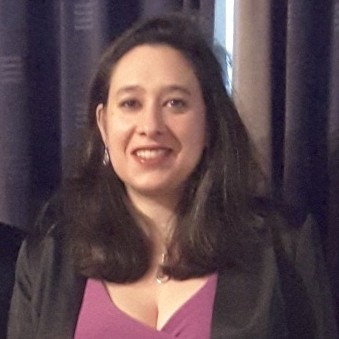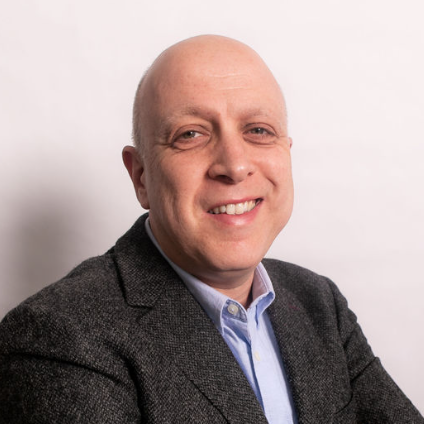Our wider network and preferred clinicians
Click on the profiles below to learn more about the individual expertise and interests of preferred clinicians

Dr Shai Betteridge
(Clinical Neuropsychologist)

Dr Shai Betteridge
(Clinical Neuropsychologist)
BSc (Hons), MSc, PsychD, CPsychol, PGDip (Clin Neuropsych), AFBpsS Consultant Clinical Neuropsychologist & Chief Psychological Professions Officer (CPPO) at St George’s University Hospitals NHS foundation Trust
Dr Shai Betteridge graduated in psychology in 1994 and subsequently worked in various areas related to the research and application of neuropsychology and neurorehabilitation. She graduated as a Health Psychologist from City University, London, in 1998, and obtained her Doctoral Qualification in Clinical Psychology from the University of Surrey in 2003. She obtained her postgraduate qualification in Clinical Neuropsychology at the Institute of Psychiatry in 2006. She is a Chartered Clinical Psychologist with the British Psychological Society (BPS), a Member of the Division of Neuropsychology’s Specialist Register of Clinical Neuropsychologists (SRCN), and is a registered practitioner psychologist with the Health and Care Professions Council (HCPC).
During her career she has always had a special interest in neuropsychological rehabilitation for survivors of acquired brain injury (ABI) and has been responsible for delivering services across the whole patient journey (i.e. hyper-acute, post-acute through to the community and vocational rehabilitation). She currently provides clinical supervision to most of the psychology service leads in Greater London and has worked closely with or for most of the UK world-renowned neurorehabilitation institutions (e.g. The Wolfson Neurorehabilitation Services; The Royal Hospital for Neuro-disability; The Wellington Hospital; the Homerton University Hospital and the Oliver Zangwill Centre).
During her career she has designed, set-up and ran various innovative services to improve the quality of NHS provision for people with ABI. For instance, neuro-navigation teams in Surrey and City and Hackney designed to improve patient flow from acute care to community; Homerton Transitional Living Service to speed discharge from acute care into integrated post-acute neurorehabilitation with simulated living; St George’s Hospital Hyper-acute Rehabilitation Unit designed to reduce patient waiting times and improve community reintegration and reduction of challenging behaviour following ABI.
Dr Betteridge is currently employed as Chief Psychological Professions Officer (CPPO) at St George’s Hospital, London. Her broad range of experience has helped her to develop extensive knowledge in neuropsychological rehabilitation and the needs of people with ABI. She has a keen interest in national government agendas that impact on the field of neurorehabilitation and people with ABI. She has been involved in various working parties committed to quality improvement and excellence and currently sits on The British Psychological Society’s Mental Capacity Act (MCA) Advisory Group and Neuropsychology Commissioning Review Group. She is a Care Quality Commission Specialist Inspector for neuropsychology services and regularly provides expert opinion to the courts on behalf of the NHS with regard to the needs of people with ABI. She is also proactively involved in delivering core teaching modules in neuropsychology for the clinical psychology and neuropsychology training courses, and a viva examiner for the UK Qualification in Clinical Neuropsychology (QICN). Her most recent seminal publications include a chapter on the empowerment behavioural management approach (EBMA) (Betteridge, Cotterill & Murphy, 2017) and the Essentials of Neuropsychological Rehabilitation (Wilson & Betteridge, 2019).

Laura Slader
(Occupational Therapist)

Laura Slader
(Occupational Therapist)
Laura is the Lead Consultant Occupational Therapist, and a founding member of Allied Neuro Therapy. She is registered with the Health and Care Professions Council and the Royal College of Occupational Therapists. She graduated in Occupational Therapy from Brunel University in 1993 and has completed specialist training with Bobath, Carr & Shepherd and Rood. She worked in the NHS for 15 years, in the fields of accident and emergency, general medicine and neurology (including acute brain injury, neurorehabilitation, community and vocational rehabilitation) before moving into operational and strategic management of community rehabilitation services. Whilst working in Australia, South Africa and Saudi Arabia, Laura developed a unique and eclectic approach to assessment and neurorehabilitation.
She established Laura Slader OT services (LSOT Ltd) in 2009. Her company has had contracts providing specialist neurorehabilitation into NHS and independent rehab units and schools. She specialises in community neurorehabilitation of individuals who have sustained catastrophic brain injury and has experience of attending the High Court of Justice to provide evidence.
Laura works actively with Headway and facilitates the Richmond HeadwaySW London group. She is also the consultant OT for Brain & Mind Ltd, providing specialist intervention for people with FND and supervision to OTs nationally working in this field.
Laura is renowned for her creative approach and ‘thinking outside the box’ to help clients achieve their aspirations. She has an exceptional ability for fostering ‘blue sky thinking’ and her motivational energy is infectious. She leads a large team of occupational therapists in providing neurorehabilitation programmes custom-built around the individual. She provides supervision and consultation to her team who work extensively in the medico-legal field. She ensures all of her supervisees follow her flexible, adaptive model that gets results. She has an integrative, goal-focused style and is dedicated to getting the best outcomes for all patients.

Dr Jeanette Thrilling
(Clinical Neuropsychologist)

Dr Jeanette Thrilling
(Clinical Neuropsychologist)
Dr Thrilling is a Senior Clinical Neuropsychologist for assessment, therapies and rehabilitation. She graduated in psychology in 1997 from the University of Liverpool and obtained her Doctoral Qualification in Clinical Psychology from Royal Holloway University in 2003. She obtained her Postgraduate Diploma in Clinical Neuropsychology in 2013 and went on to complete the British Psychological Society Qualification in Clinical Neuropsychology in 2015. She is a Chartered Clinical Psychologist with the British Psychological Society, a Full Practitioner Member of the Division of Neuropsychology, and she is HCPC registered.
During her career she has always had a special interest in neuropsychological rehabilitation. She has worked in specialist inpatient settings, such as the Regional Hyper-acute Rehabilitation Unit at Northwick Park Hospital, as well as community neurorehabilitation services in Islington and Hertfordshire. This broad range of experience has helped her to develop extensive knowledge and experience in neuropsychological assessment and rehabilitation. She has also been involved in leading services and service development. Dr Thrilling is an associate working with Allied Neuro Therapies Ltd as well as with Brain and Mind.
Dr Thrilling ensures she keeps abreast of new literature and regularly attends and presents at conferences. She has a keen interest in the training and development of new clinical psychologists. She provides teaching to the Clinical Psychology Training course at the University of London and has Clinical Psychology Trainees on placements with her in Hertfordshire. She enjoys supervising other clinical psychologists, providing training to other clinicians and generally enhancing the understanding of clinical neuropsychology, while advocating for her clients.

Dr Ohr Barak (Consultant Neuropsychologist)

Dr Ohr Barak (Consultant Neuropsychologist)
Dr Barak is the Neuropsychology lead for the Hertfordshire NHS Neurological Rehabilitation Service, with special interests in rehabilitation of people with brain injury, primarily utilising systemic, psychodynamic and behavioural interventions.
- Registered with HCPC as a Clinical Psychologist since 2009 – Registration Number PYL24077.
- Registered with BPS on specialist register of clinical neuropsychologists since 2013 – Registration number 264765.
- Professional Indemnity with Howden.
- Registered with the Data Protection Officer at the Information Commissioner’s Office.
Dr Barak has extensive international experience in the field of brain injury rehabilitation, primarily as a consultant leading a team of neuropsychologists and other health professionals. He has experience in varied settings, including acute hospital, inpatient rehabilitation, community services, long-term care, challenging behaviour neuropsychiatric units, NHS and charities. Alongside his main employment with the NHS, Dr Barak has been involved, within the capacity of his private practice, with medico-legal cases across the country, working jointly over years with case managers and as part of a case manager led multidisciplinary teams.
Dr Barak’s main interests are assessment and intervention following traumatic brain injuries, as well as other neuro-aetiologies (such as brain tumours, brain infections and hypoxic injuries). He is experienced in working with complex cases, including people with pre-injury impacted mental health, limited awareness, adjustment difficulties and post-injury behavioural changes, such as impulsivity and disinhibition. He has a special interest in changes to family dynamics post injury and can be involved in helping families better adjust and realign themselves despite the change to their family member.
Dr Barak specialises in psychodynamic, evidence based interventions following brain injury. In addition, after working as a consultant in two neuro-psychiatric hospitals for survivors of brain injury who present with behaviours that challenge (such as aggression and inappropriate sexual behaviour), he can help in the management such behaviours in community setting, supporting MDTs to manage those better. Relaxation, mindfulness and biofeedback can be offered for clients presenting with high anxiety. All interventions are adjusted to the client’s cognitive profile following their injury, in line with national and international clinical guidelines. The work is client focused and goal orientated. Dr Barak has published articles on the use of self-psychology to help the recovery of clients who despite mild injuries, demonstrate with long term poor recovery (Barak, 2017). He also researched the impact of hope and optimism in mediating depression post injury (Peleg et al., 2009).
Dr Barak has been involved in clinical work and research developments in cognitive remediation (Thompson et al., 2018; Cole et al., 2016), effective for clients presenting with impaired attention, memory and executive functioning. These clinical interventions can be used, typically in collaboration with OT interventions, to help the brain injury survivor acquire new methods to overcome or bypass their cognitive deficits and find new ways of engaging in meaningful activities.
Dr Barak’s most recent interest is in the provision of family and systemic interventions to families of brain injury survivors. He trained at the Tavistock and Portman NHS Service, with a view to support a more holistic process of client recovery. Family members’ lives can change radically post injury, however not being the ‘identified patient’, they can be neglected in the rehabilitation journey. Dr Barak utilises systemic theories, but tailored to the specific needs of families who experienced the trauma of brain injury and can struggle to re-establish balance in the family dynamics.
Additional roles and previous affiliations:
- National Assessor for the Qualification in Clinical Neuropsychology, British Psychological Society and the Solomons Institute.
- Applied Psychology Practice and QiCN Supervisor, British Psychological Society.
- Consultant in Neuropsychology and Rehabilitation, BrainKind (formerly BIRT), York House and Chalkdown House, Neurobehavioural Specialist Hospitals.
- Adult Neuropsychology Representative, Membership Service Unit, British Psychological Society.